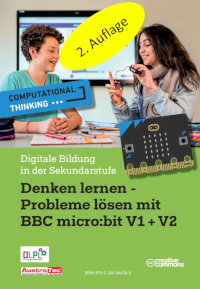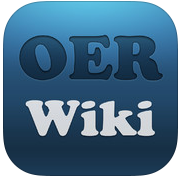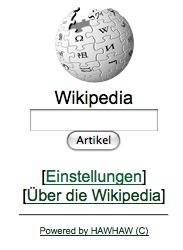Das „micro:bit – Das Schulbuch“ ist nun in der zweiten Auflage online verfügbar und gründsätzlich auch für den Lehrplan des neuen Unterrichtsfaches „Digitale Grundbildung“ geeignet:
Auf diesem WIKI finden sich Beispiele und weiteres Material zum österreichischen Schulbuch über den BBC micro:bit. Seit September 2022 gibt es eine zweite adaptierte und erweitere Auflage des Buches. Das gedruckte Buch dient dabei als Ideengeber und kann ausreichen, um alle darin vorgestellten Aufgaben zu lösen. Sollten Hinweise, Tipps oder Lösungen zu den Aufgaben gesucht werden, wird man auf dieser Webseite fündig. Die erste Auflage des Buches stellt exemplarisch 22 Projekte vor, in der zweiten Auflage finden sich 39 Beispiele, die in der Sekundarstufe I in einem fächerübergreifenden, projektorientierten Unterricht eingesetzt werden können. Es ist kein reines Informatik- oder „Programmierlernbuch“. Es verwendet den BBC micro:bit als Grundlage für spannende und kreative Projekte. Der notwendige Code kann, wenn man einmal eine Idee für den Algorithmus gefunden hat, ganz einfach direkt im Webbrowser erstellt, getestet und danach bei Bedarf heruntergeladen und auf einem realen micro:bit installiert werden.
Das ganze Buch und das Wiki findet man hier: https://microbit.eeducation.at/wiki/Hauptseite
Weiters gibt es auf iMooX.at auch einen MOOC der Lehrer:innen beim Einsatz unterstützen soll: [Link zum kostenlosen Online-Kurs]






